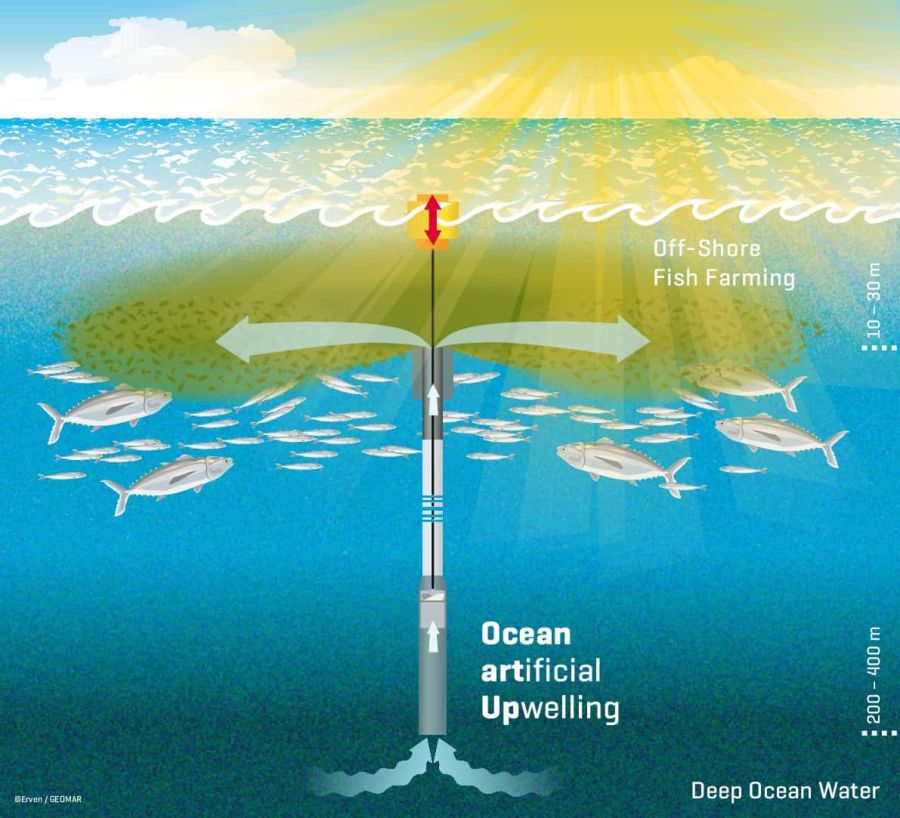The productivity of the ocean is limited by the transport of nutrient-rich deep waters to the sun-lit surface layer. In large parts of the global ocean this transport is blocked by a temperature-induced density gradient, with warm light waters residing on top of heavier cold waters. These regions, which are referred to by scientists as ocean deserts, are presently expanding due to global warming. Enhancing the upward transport of nutrient-rich deep waters through artificial upwelling can break this blockade and make these waters more productive. To what extent this raises fish production and whether it can strengthen oceanic CO2 sequestration is still an open question. Importantly, the potential risks and side effects of this approach are largely unknown.

Ocean artUp aims to study the feasibility and effectiveness of artificial upwelling in fertilizing ocean productivity and enhancing energy transfer to higher trophic levels with the potential of raising fish production. Ocean artUp will further investigate the impacts of artificial upwelling on biogeochemical cycling, including carbon export potential, and air-sea gas exchange of climate relevant gases. A particular emphasis will be laid on elucidating the associated risks and potential side effects in terms of changing ocean ecosystems structure and functioning and modifying nutrient inventories and fluxes.
